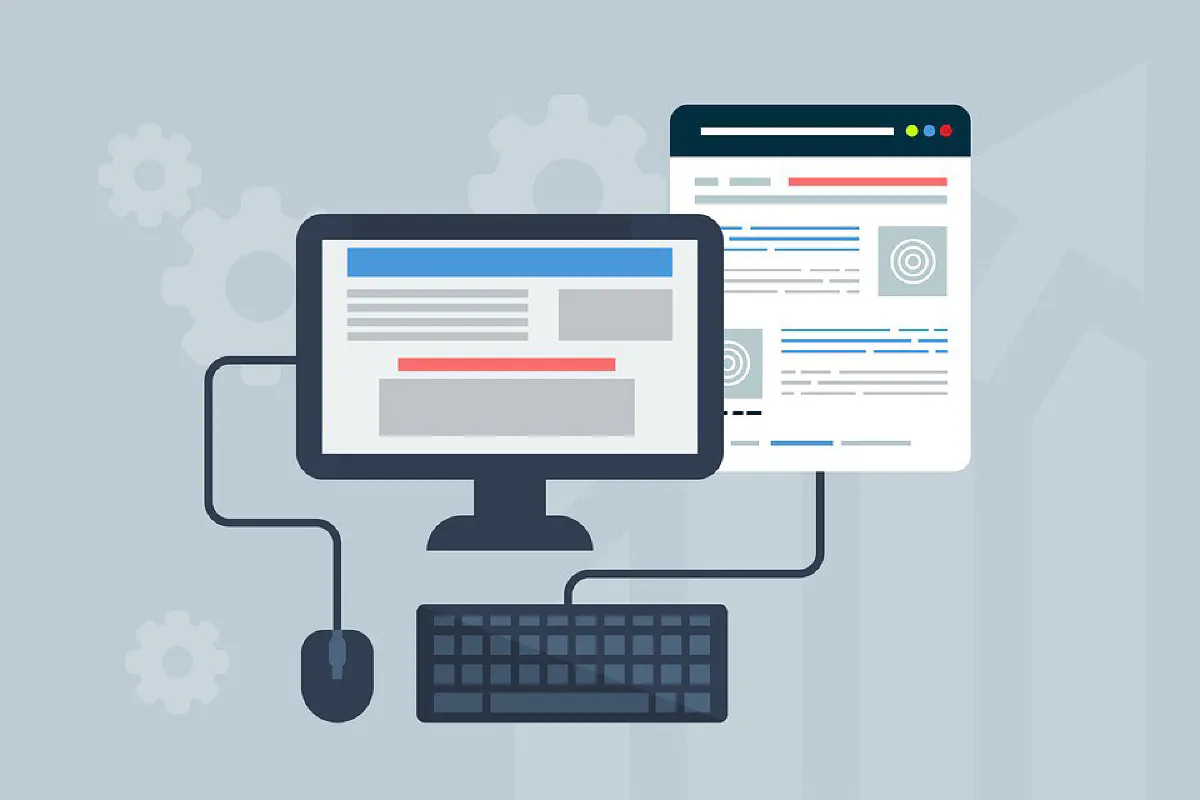Is It Legal to Scrape Public Data?
There is not much that is illegal about scraping public data on the Internet. However, if you come across personal or proprietary data while scraping publicly available data, avoid scraping that data as much as possible. While many people think that there are many shady or illegal things about web scraping, there is actually nothing wrong with scraping except for personal data and intellectual property. Just as there are certain limits in many human activities, you need to stay within certain limits during this process, an example of these limits is the terms of service of the website.
At Scrape.do we offer scrapers that can help you scrape any website you want within legal frameworks. With our scraping tools, which you can buy as a package according to your needs, you will be able to scrape the website you want quickly and efficiently without being caught. Contact us to learn more and take advantage of our packages!
Common Mistakes About Web Scraping
In order to learn about the legality or illegality of web scraping and what data to scrape, you must first learn the common misconceptions about web scraping and the truth of these misconceptions. While it is thought that web scraping is illegal, network scrapers operate in a gray legal area, web scraping is hacking, and web scrapers steal data, none of this is true. Let’s discuss the accuracy and falsity of this information together.
Myth 1: Web Scraping Is A Completely Illegal Activity.
Web scraping is not a completely illegal activity, but rather a mostly legal one, and the legality of this process depends on what you scrape and how. You can liken it to shooting a video with your phone. You’re perfectly legal to shoot a scene or video of consenting people, but you could run into legal issues if you’re shooting videos of an army base or people without consent. There is also no law or immutable rule that prohibits web scraping, but keep in mind that this doesn’t mean you can scrape anything you want and keep your scraped data.
Myth 2: Web Scrapers Work in a Gray Legal Area.
It is completely false information that web scrapers exploit the loophole of the law and operate as such. In fact, almost ninety percent of web scraping companies are just as normal as other companies that offer you services and get paid in return. There are also legal regulations and rules that web scraping companies must follow in order to do their job. While web scraping is not heavily and carefully regulated, this does not mean that web scrapers are exploiting the law or are illegal.
Myth 3: Web Scraping is Exactly the Same Thing as Hacking.
The term hacking has many different interpretations and people may interpret hacking according to their own ideas, but the accepted general meaning of hacking is to access a computer’s system and exploit this system according to your wishes in non-standard ways. Scrapers used in web scraping log into websites as a normal person would, that is when scrapers are used, any computer system is not accessed by non-standard ways. All the data you get while web scraping is publicly available data.
Myth 4: Web Scrapers Are Used To Steal Data.
We have already mentioned that web scrapers are used to collect data that is publicly available on the Internet, cannot gain access to computer systems, and do not attack computer systems. This information is also completely false, as web scrapers access publicly available data and public data cannot be stolen either. For example, if you went to a store and saw a beautiful phone, and wrote down the make and model of this phone to review or buy later, would you steal the information? Of course, you wouldn’t be stealing information.
Data You Need to Be Careful With While Web Scraping
We mentioned that it is perfectly legal to scrape publicly available data and save it somewhere for later review. But you should be careful with copyrighted data and personal data while web scraping.
Personal Data
Personal data is known as Personally Identifiable Information (PII). The existence of personal data is accepted by Europe’s General Data Protection Regulation (GDPR) and laws in many states in America, and it has been decided that some personal data should be fully protected. Personally Identifiable Information or Personal Data may include:
- Name and surname
- Address info
- Date of birth and place of birth
- Contact information, mobile phone number
- Employment information, address of the place of work
- Ethnicity
- Personal medical data
- Financial information
According to the laws of many countries, it is completely illegal to scrape, collect, use and store Personal Identifiable Data without the express consent of the owner. It should be noted that there may be legal exceptions in this regard in some countries.
If you are doing a web scraping it is extremely difficult to get the consent of the person whose data you are collecting, and you should not scrape that data as it is also completely illegal to collect Personal Identifiable Data without the express consent of the owner of the data. So when scraping data on a website, it would be the best move to not scrape Personal Identifiable Data. Otherwise, you may face legal regulations.
Copyrighted Data
The right to use and reproduce all copyrighted data belongs to businesses or people who legally own that data. Here are some examples of this data so you can avoid it, as scraping this type of data can often cause problems:
- Photos were taken by photographers
- Traditional or digital drawings of painters
- Databases of some companies
- Songs
- Published articles
Almost all copyrighted data can be found easily online, in fact, they are copyrighted data because they are easily accessible. It is completely illegal to use this data of your own will without the express permission of the copyright owner, but there is a fine detail at this point.
While it is completely illegal to publicly use copyrighted data without the consent of the owner, it is not illegal for you to scrape and collect this data alone. Keep in mind, though, that the rules and laws in all countries are not the same, in some areas you may not be able to access any of the copyrighted data, while in others you may be able to use some.
What Do European and US Laws Say About Web Scraping?
We mentioned above that GDPR and CCPA are laws to protect personal data and Personally Identifiable Information cannot be collected illegally. These two laws have strict rules about Personally Identifiable Information. Although there are other details in the work, each region can have different rules. Now let’s look at what European and US laws say about scraping Personally Identifiable Information with Web Scraping.
European Laws
GDPR, which became enforceable in 2018 and is an important law on the use of personal information, applies to the use of people residing within the European Economic Area (EEA). If you want to scrape the data of people in the European region, there is no article for the protection of anonymized data in this law, which you should definitely take a look at.
This is where GDPR comes into play if the data of people living in the European Economic Area is obtained by data controllers and this data is transmitted to data processors. GDPR has regulations covering the protection of personal information regarding web scraping, including data stored in cloud storage.
If data in a company has been stolen and that company is operating in compliance with GDPR, both the people whose data was stolen and the authorities responsible for protecting the data are informed. After this information, businesses need to understand why there is a violation and plan what steps to take to prevent the violation. In addition, the amount and categories of all information compromised during these transactions should be communicated to the necessary authorities.
Important note: Since companies located in the European Economic Area are GDPR compliant, it is completely illegal to scrape Personally Identifiable Information on the websites of companies located in this region.
US Laws
There is no absolute federal privacy law in the USA, so it is possible to scrape the websites of all businesses in the USA. However, there are many points that you should know before you dance with joy and joy.
In the United States, there is a patchwork that can be qualified as proof of concept for federal use by the United States Congress, and this patchwork contains the laws of many states. For example, CCPA is used to prevent the Personally Identifiable Information of people living in the state of California from being scraped. There is also the Health Insurance Portability and Accountability Act (HIPAA) and the Gramm-Leach-Bliley Act (GLBA) of 1999 throughout the US. (Thanks to these two laws, the health information and financial information of people living in America are protected.)
Comparison of European and US Laws
It is extremely difficult to compare and contrast European and US laws as to whether web scraping itself and the practice of web scraping are legal. This is because the data security laws of people living in Europe are protected by a single law (GDPR), while there is no federal law in the USA, and individual states come up with laws to protect consumer privacy.
For example, CCPA, a law proposed for the state of California, is the most comprehensive and internet-focused law in the USA. There is even a detailed list of the contents of Personally Identifiable Information in this law. Examples in this list include browsing history, geolocation, biometric data, email, and employee information. Although other states in the USA have taken action to introduce such laws, they did not have a law as comprehensive as the state of California.
Both the CCPA and the GDPR are laws that allow individuals to prevent the use of their data voluntarily. It is also possible for individuals to remove their data at any time and access their data again. The most important difference between GDPR and CCPA is that CCPA requires privacy statements on all websites, while GDPR requires explicit user consent.
How to Be a Web Scraper Ethical and Legal?
Most of the bad things you’ve read about web scraping are untrue, but there are still many things to watch out for. We mentioned that these issues are not scraping personal data and data protected by copyright. But if you want to have both a legal and ethical web scraper, make sure your web scraping and web scraper have these features:
- Your web scraper should act like a bona fide person browsing the internet. It should not overload the website for which data scraping is intended and targeted, but should protect the website.
- All data you scrape and store must be publicly shared. In addition, the data you obtain should not be protected by any password.
- All the data you scrape should be based on real information, not contain any fake information.
- The data you obtain with web scraping must not infringe any other person’s rights or copyrights.
- If the data you get with web scraping is used for your business, it should be used to create a new and tailored product. (Web scraping, which is used to steal another business’s market share, aims to attract users and create a product similar to the target website is unethical.)
If you want your web scraping tool to work completely ethically and legally, you can get help from Scrape.do. With our support team, who will take care of you whenever you need support, you will not be exposed to any legal problems and you will have quick access to all the information you want and also need, without sharing your identity with the target website!





